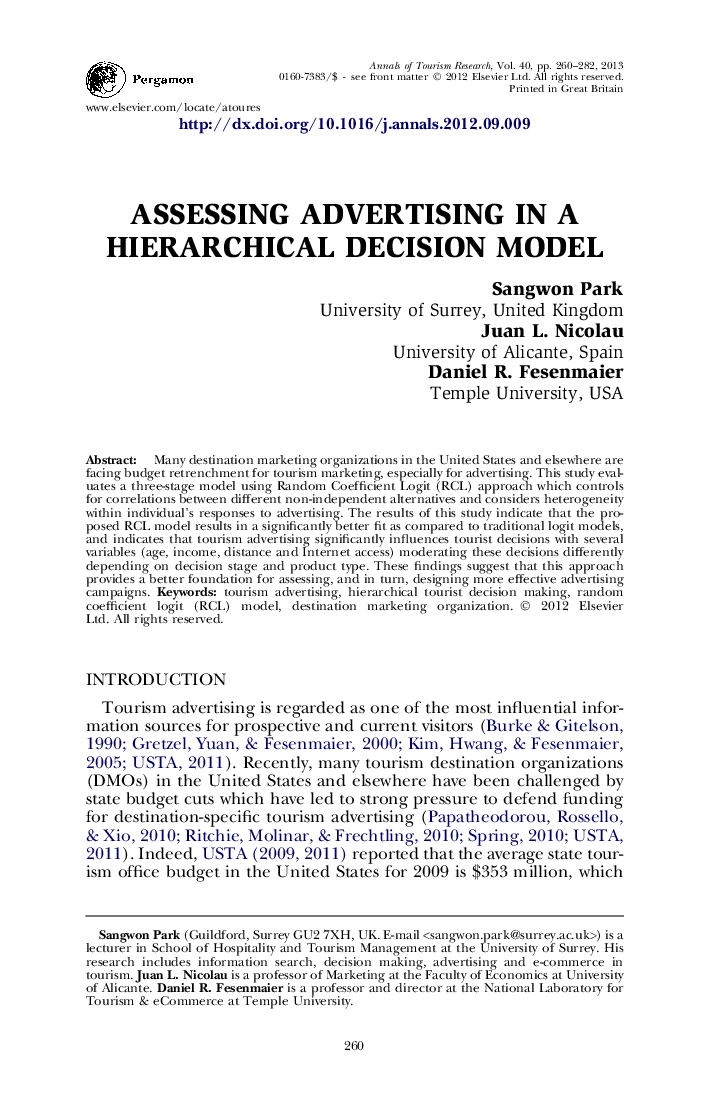| Article ID | Journal | Published Year | Pages | File Type |
|---|---|---|---|---|
| 1007161 | Annals of Tourism Research | 2013 | 23 Pages |
Abstract
Many destination marketing organizations in the United States and elsewhere are facing budget retrenchment for tourism marketing, especially for advertising. This study evaluates a three-stage model using Random Coefficient Logit (RCL) approach which controls for correlations between different non-independent alternatives and considers heterogeneity within individual’s responses to advertising. The results of this study indicate that the proposed RCL model results in a significantly better fit as compared to traditional logit models, and indicates that tourism advertising significantly influences tourist decisions with several variables (age, income, distance and Internet access) moderating these decisions differently depending on decision stage and product type. These findings suggest that this approach provides a better foundation for assessing, and in turn, designing more effective advertising campaigns.
Related Topics
Social Sciences and Humanities
Business, Management and Accounting
Tourism, Leisure and Hospitality Management
Authors
Sangwon Park, Juan L. Nicolau, Daniel R. Fesenmaier,
